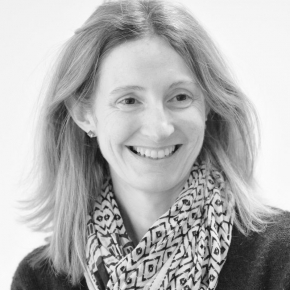Welcome to the PhD Students Seminars
This page presents the PhD Students Semianrs starting from januray 2017.
Bertrand Simon: Thursday 04/27/2017 at 17h.
Bertrand Simon is a second year PhD student within the ROMA project team. He will present a work that he has performed during his master degree studies entitled "Deadlock Avoidance and Detection In Railway Simulation Systems".
Abstract:
Avoiding or preventing deadlocks in simulation tools for train scheduling remains a critical issue, especially when combined with the objective of minimizing, e.g., the travel times of the trains. In this talk, we revisit the deadlock avoidance and detection problem, and propose a new deadlock avoidance algorithm, called deadaalg, based on a resource reservation mechanism. The Deadaalg algorithm is proved to be f inite, and either detects an unavoidable deadlock resulting form the input data or provide a train scheduling thanks the simtras algorithm, which is free of deadlocks in O(|S|.|T|2 log|T|), where T is the set of trains and S is the set of sections in the railway topology. Experiments are conducted on the Vancouver-Calgary single track corridor of Canadian Pacific. We then show that the simtras algorithm is very efficient and provides schedules of a quality that is comparable to those of an exact optimization algorithm, in tens of seconds for up to 30 trains/day over a planning period of 60 days.
Aurore Alcolei: Thursday 06/08/2017 at 17h.
Abstract:
TBA.
Samuel Unicomb: Thursday 02/16/2017 at 17h.
Samuel is a new PhD student working with Eric Fleury and Marton Karsai. He propose to present a work entitled "Our friends are not equal: How heterogeneous social influence promotes or hinders behavioural cascades in complex networks".
Abstract:
Social influence is arguably one of the main driving mechanisms of many collective phenomena in society, including the spreading of innovations, ideas, fads, or social movements. Many of these processes have been modelled as complex contagion (where individual thresholds of social influence determine local adoption and global spreading, like the Watts model of adoption cascades). In these models social influence is commonly assumed to be homogeneous across ties in the network, while in reality it may vary from neighbour to neighbour, as it largely depends on the nature and frequency of interactions between acquaintances. We address this issue by studying a dynamical cascade model on weighted networks, where tie heterogeneities capture diversity in social influence.
Arnaud Lefray: Thursday 02/16/2017 at 17h20.
Arnaud Lefray is a doctor now and since 2015, he has been developping a start-up named Qirinus with Inria that proposes secure and adapted cloud solutions to clients. He will discuss about this opportunity that we all have to create a new company and go by our own. How to find infos ? What kind of help we have access ? What are the different steps to create your own companies ? He has a piece of advices to share with us.
Issam Raïs: Tuesday 01/17/2017 at 17h.
Issam Raïs is a second year PhD student from Avalon and Roma teams. He will present a work entitled "Impact of Shutdown Techniques for Energy-Efficient Data Centers"
Abstract:
Electricity consumption is a worrying concern in current large-scale systems like datacenters and supercomputers. These infrastructures are often dimensioned according to the workload peak. However, their consumption is not power-proportionnal: when the workload is low, the consumption is still high. Shutdown techniques have been developped to adapt the number of switched-on servers to the actual workload. However, datacenter operators are reluctant to adopt such approaches because of their potential impact on reactivity and hardware failures, and their energy gain which is often largely misjudged. In this talk, we evaluate the potential gain of shutdown techniques by taking into account shutdown and boot up costs in time and energy. This evaluation is made on recent server architectures and future hypothetical energy-aware architectures. We also determine if the knowledge of future is required for saving energy with such techniques. We present simulation results exploiting real traces collected on different infrastructures under various machine configurations with several shutdown policies, with and without workload prediction.

